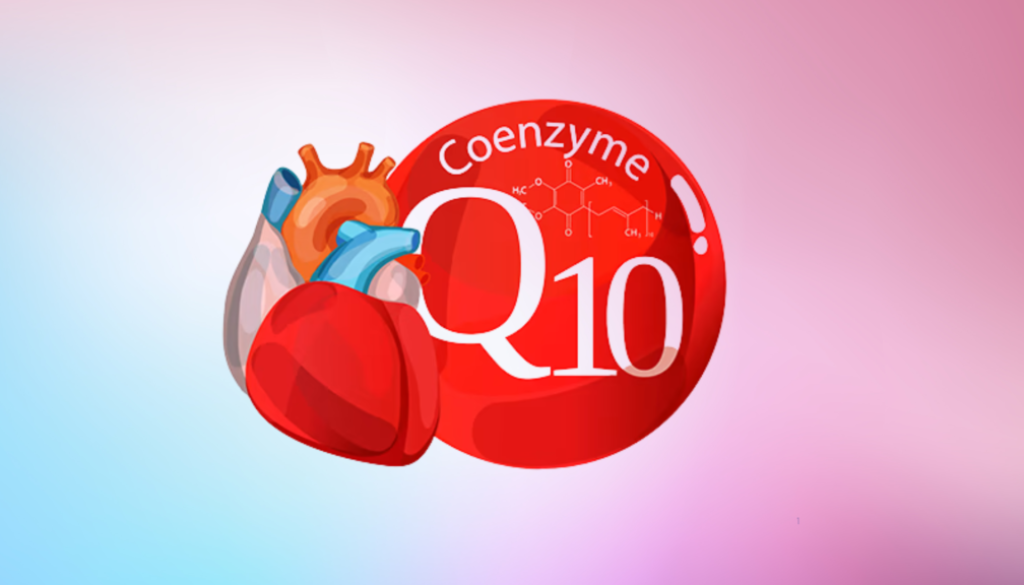Everything You Need to Know About Coenzyme Q10
Coenzyme Q10, also known as CoQ10, is a natural compound found in every cell of the human body. It plays a key role in producing energy and acts as an antioxidant, protecting the body from damage caused by harmful molecules. In this article, we’ll delve deeper into what CoQ10 is, its benefits, and how to incorporate it into your diet.
-
What is Coenzyme Q10?
-
Ubiquinone Vs Ubiquinol
-
How can you get CoQ10 naturally from foods?
-
Why do people take CoQ10?
-
Benefits of Coenzyme Q10 (CoQ10) Helps with Congestive Heart Failure
-
What are benefits for supporting cardiovascular health?
-
Can CoQ10 help with Diabetes?
-
Is CoQ10 good for energy and exercise performance?
-
Promotes healthy skin
-
Helps prevent migraine
-
Supports brain function
-
Does CoQ10 prevent cancer?
-
Safety and Side Effects
-
Interactions
-
Dose
-
The best Coenzyme Q10 (CoQ10) supplements
What is Coenzyme Q10?
CoQ10 is a fat-soluble compound that is found in every cell of the human body, especially in the heart, liver, and kidney. It is involved in the production of ATP, a molecule that the body uses for energy.
Ubiquinone Vs Ubiquinol
There are two different forms of CoQ10 in the body. Ubiquinone, called CoQ10, is the oxidized form which is converted to active form, called Uniquonol. Uniquonol is readily utilized by the body. However, CoQ10 can easily convert between forms as needed within the body in most people.
How can you get CoQ10 naturally from foods?
What foods are high in CoQ10?
- Organ meats: heart, kidney, and liver
- Fatty fish: salmon, tuna, trout, herring, and sardines
- Legumes: soybeans and lentils
- Nuts and seeds: peanuts, sesame seeds and pistachios
- Oils: soybean and canola oil
How do vegans get CoQ10?
There are some plant-based sources that can provide CoQ10:
- High in CoQ10: extra virgin olive oil, grape seed oil, corn oil, and peanut oil
- Moderate in CoQ10: walnuts, peanuts, hazelnuts, almonds, avocado, sesame seeds, broccoli, and parsley
- Low in CoQ10: sweet potatoes, garlic, spinach, asparagus, cabbage, tofu, oranges, apples, strawberries, bananas
What are benefits for supporting cardiovascular health?
CoQ10 helps lower blood pressure and maintain healthy cholesterol levels, reducing the risk of heart diseases. It also can reduce free-radical damage and strengthen heart function. However DO NOT try to treat those diseases without consulting health care professionals.
Can CoQ10 help with Diabetes?
CoQ10 can help improve blood sugar control and insulin sensitivity. One study demonstrated that “CoQ10 supplementation for 12 weeks among DN patients had favorable effects on glucose metabolism” (DN-Diabetic neuropathy). [2]
Is CoQ10 good for energy and exercise performance?
CoQ10 plays a crucial role in the production of ATP, the molecule that provides energy to cells in the body. Taking CoQ10 can boost energy levels and reduce fatigue.
CoQ10 also can enhances exercise performance by increasing endurance and improve recovery time after exercise.
Promotes healthy skin
CoQ10 is an antioxidant that protects the skin from damage caused by free radicals. It can also improve skin texture and reduce the appearance of wrinkles.
One study demonstrated that “stressed skin benefits from the topical Q10 treatment by reduction of free radicals and an increase in antioxidant capacity.” [3]
Helps prevent migraine
CoQ10 plays a role in cellular energy production and antioxidant protection, both of which are important for reducing headache symptoms. It helps improve mitochondrial functions, which can decrease inflammation and oxidative stress that contribute to headaches. Additionally, studies have suggested that CoQ10 may have a protective effect on brain cells and may help regulate blood flow to the brain, which can also reduce headache severity.
A study suggests that “CoQ10 might reduce the frequency of headaches, and may also make them shorter in duration, and less severe, with a favorable safety profile.” [4]
Supports brain function
CoQ10 helps protect brain cells from damage and can improve cognitive function in older adults.
Does CoQ10 prevent cancer?
Higher risk of certain cancer patients may be associated with low levels of CoQ10. CoQ10 can reduce oxidative stress, improve immune system and slow the growth of cancer cells. It plays a role in cancer prevention, but it doesn’t show to be effective in cancer treatment. [5][6][7]
Safety and Side Effects
CoQ10 is considered generally safe. However some people may be sensitive to it and may have mild side effects such as nausea, diarrhea, headache and skin rashes.
CoQ10 supplements can be taken with food to prevent digestive side effects. It can be increase absorption when taken with meal or snacks as it is fat-soluble.
It should be taken during daytime instead of night time to avoid insomnia.
Interactions
Coenzyme Q10 supplements may interact with some medication that lower blood pressure and chemotherapy drugs.
Coenzyme Q10 may also interact with Warfarin by decreasing its effectiveness.
Dose
The most common dose is 100 to 200 mg per day. The recommended dosage for heart disease prevention is 300mg per day.

